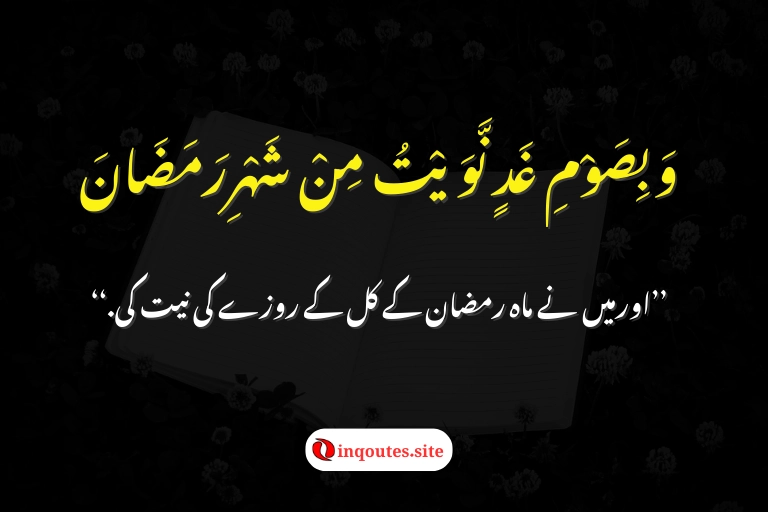
Fasting, or Roza, is one of the fundamental acts of worship in Islam, particularly during the holy month of Ramadan. It’s a time for spiritual growth, self-discipline, and reflection, allowing Muslims to connect with Allah and purify their hearts and souls. One of the most important moments during the fast is the breaking of the fast, known as Iftar. However, many people wonder about the proper dua (supplication) to recite when closing their fast, or as it’s called in Urdu, “Roza Band Karne Ki Dua.”
In this blog post, we’ll explore what Roza Band Karne Ki Dua is, why it is important, the correct way to say it, and other related prayers that help enhance your spiritual experience. By the end of this guide, you’ll have a solid understanding of this essential practice, and you’ll be able to make it part of your daily Ramadan routine.
What is Roza Band Karne Ki Dua?
Roza Band Karne Ki Dua refers to the prayer or supplication recited at the time of breaking the fast. It is a special moment for a Muslim, as it marks the end of a day spent in worship, patience, and devotion. The term “Roza Band” essentially means closing or breaking the fast, and the dua is the means by which Muslims thank Allah and ask for blessings at this sacred time.
When you recite Roza Band Karne Ki Dua, you acknowledge the blessings of the day and ask Allah for forgiveness, mercy, and rewards. The dua is a way to end your fast with a sense of gratitude and devotion.
Importance of Roza Band Karne Ki Dua
The importance of this dua cannot be overstated. Firstly, it’s a way of following the Sunnah (tradition) of the Prophet Muhammad (PBUH), who regularly recited prayers when breaking his fast. By doing this, Muslims show their obedience to the Prophet and keep their connection to their faith strong.
Secondly, Roza Band Karne Ki Dua holds spiritual significance. It’s an acknowledgement of the struggle and sacrifices made during the day. Fasting isn’t just about abstaining from food and drink; it’s about controlling your desires and focusing on self-purification. Reciting this dua is a way to thank Allah for the strength to complete the day’s fast and to ask for continued guidance and blessings.
The Correct Way to Recite Roza Band Karne Ki Dua
Now, let’s break down the dua. The traditional dua that is commonly recited when breaking the fast is:
وَبِصَوْمِ غَدٍ نَّوَيْتُ مِنْ شَهْرِ رَمَضَانَ.
’’اورمیں نے ماہ رمضان کے کل کے روزے کی نیت کی.‘‘
This can be translated as:
I Intend to keep the fast for month of Ramadan
Breakdown of the Dua
Let’s take a closer look at the meaning and significance of each part of the dua:
- اللّهُمّ إني لك صمت (“Allahumma inni laka sumtu”) – O Allah, I fasted for You: This part signifies that the fast is performed solely for the sake of Allah. A Muslim acknowledges that they are fasting as an act of obedience and submission to Allah.
- وبك آمنت (“Wa bika aamantu”) – And I believe in You: This portion highlights a person’s faith in Allah. Fasting is not only a physical act but a manifestation of belief in Allah’s commands and mercy.
- وعليك توكّلت (“Wa ‘alayka tawakkaltu”) – And I put my trust in You: This part reflects the concept of Tawakkul, which means placing complete trust in Allah after taking all necessary actions. It signifies the deep reliance on Allah’s will and mercy.
- وبك فاطرخت (“Wa bika-aftar-tu”) – And with Your sustenance, I break my fast: This part expresses gratitude for the sustenance Allah provides to break the fast. It reminds Muslims that everything, including food, is a blessing from Allah.
Why Is It Important to Recite the Dua with Sincerity?
When reciting Roza Band Karne Ki Dua, it’s essential to do so with sincerity and focus. This is not just a ritual; it’s a time to connect with Allah and reflect on the blessings you have received. Saying the dua with a mindful heart will not only help you develop your spirituality but also cultivate gratitude for the provisions Allah has granted you.
Other Dua for Roza Band Karne Ki Moments
While the Roza Band Karne Ki Dua mentioned above is widely known and recited, there are other supplications that can enhance your experience during Iftar. These dua include prayers for forgiveness, healing, and protection. Some of them are:
- اللّهُمّ إني أسالك برحمتك التي وسعت كل شيء أن تغفر لي
“Allahumma inni as’aluka birahmatika allatī wasi‘at kulla shay’in an taghfirī li.”
O Allah, I ask You by Your mercy that encompasses everything, to forgive me. - اللّهُمّ أعني على صيامه وقيامه
“Allahumma a’inī ‘ala siyamihi wa qiyāmihi.”
O Allah, help me to fast and to perform the night prayers.
Other Tips for a Better Roza Experience
Along with reciting the Roza Band Karne Ki Dua, there are some other things you can do to enhance your fasting experience:
- Make Dua Regularly: Along with the specific dua for breaking the fast, make time throughout the day to ask Allah for your needs. Ramadan is a month of great mercy, and Allah is most generous in answering prayers during this time.
- Focus on Gratitude: At the moment of Iftar, reflect on how blessed you are. Be thankful for your food, your health, and the opportunity to fast. By focusing on gratitude, your fast becomes more meaningful.
- Give Charity: The reward of charity is multiplied during Ramadan. It’s recommended to give Sadaqah (voluntary charity) during Iftar to enhance your reward.
- Break Your Fast with Dates: Following the Sunnah of the Prophet Muhammad (PBUH), break your fast with dates and water. If you don’t have dates, you can use any other food, but dates are the traditional way.
Conclusion: The Power of Roza Band Karne Ki Dua
Roza Band Karne Ki Dua is more than just a prayer. It’s an opportunity to connect with Allah, reflect on the blessings in your life, and express your gratitude for the strength to complete the fast. Whether you are fasting during Ramadan or on any other day, the dua serves as a reminder of your faith and devotion.
As you recite this dua, remember to do so with a heart full of sincerity and a mind focused on Allah’s mercy. And don’t forget that every prayer you make, whether it’s for forgiveness or guidance, brings you closer to Allah and strengthens your relationship with Him.
May your fasts be accepted, your prayers answered, and your hearts filled with peace and contentment during this blessed month.

